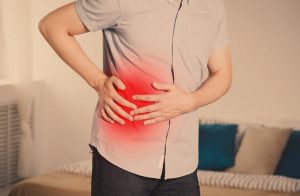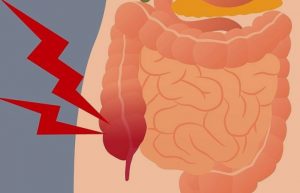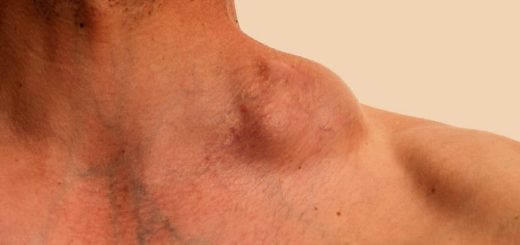Penyakit Usus Buntu
- An overview
- Appendicitis symptoms
- Causes of appendicitis
- Test for appendicitis
- Can your doctor use an ultrasound to diagnose appendicitis?
- Treatment options for appendicitis
- Surgery for appendicitis
- Acute appendicitis
- Chronic appendicitis
- Appendicitis in children
- Recovery time for appendicitis
- Appendicitis in pregnancy
- Potential complications of appendicitis
- Prevent appendicitis
- Risk factors for appendicitis
- Types of appendicitis
- Appendicitis and home remedies
- Reference
An overview
Appendicitis occurs when your appendix becomes inflamed. This can be acute or chronic.
In the United States, appendicitis is the most common cause of abdominal pain that results in surgery. More than 5 percent of Americans experience it at some point in their life.
If left untreated, appendicitis can cause your appendix to burst. This can cause bacteria to spill into your abdominal cavity, which can be serious and sometimes fatal.
Read on to find out more about the symptoms, diagnosis, and treatments for appendicitis.

Appendicitis symptoms
If you have appendicitis, you may experience one or more of the following symptoms:
- Pain in your upper abdomen or around your belly button
- Pain in the lower right side of your stomach
- Loss of appetite
- Indigestion
- Nausea
- Gag
- Diarrhea
- Constipation
- Swelling of the stomach
- Inability to pass gas
- Mild fever
Appendicitis pain can start as a mild cramp. Often it becomes more stable and severe over time. It may start in your upper abdomen or belly button area, before moving to the lower right quadrant of your abdomen.
If you are constipated and you suspect you may have appendicitis, avoid taking laxatives or using enemas. This treatment can cause your appendix to burst.
Call your doctor if you have tenderness on the right side of your stomach along with other symptoms of appendicitis. Appendicitis can quickly become a medical emergency. Get the information you need to identify this serious condition.
Causes of appendicitis
In many cases, the exact cause of appendicitis is unknown. Experts believe it develops when part of the attachment becomes blocked, or blocked.
Many things can potentially block your appendix, including:
- buildup of hardened dirt
- enlarged lymphoid follicles
- intestinal worms
- traumatic injury
- tumor
When your appendix becomes blocked, bacteria can breed in it. This can lead to pus formation and swelling, which can cause painful pressure in your stomach.
Other conditions can also cause stomach upset. Click here to read about other possible causes of pain in your lower right abdomen.

Test for appendicitis
If your doctor suspects you may have appendicitis, they’ll do a physical exam. They will check for pain in the lower right side of your abdomen and swelling or stiffness.
Depending on the results of your physical exam, your doctor may order one or more tests to check for signs of appendicitis or rule out other possible causes for your symptoms.
There is no single test available to diagnose appendicitis. If your doctor can’t identify another cause for your symptoms, they can diagnose the cause as appendicitis.
Complete blood count
To check for signs of infection, your doctor may order a complete blood count (CBC). To do this test, they’ll collect a sample of your blood and send it to a laboratory for analysis.
Appendicitis is often accompanied by a bacterial infection. Infection of the urinary tract or other abdominal organs can also cause symptoms similar to appendicitis.
Complete blood count
Urine test
To rule out urinary tract infections or kidney stones as potential causes of your symptoms, your doctor may use urinalysis. This is also known as a urine test.
Your doctor will collect a sample of your urine which will be examined in a laboratory.
Pregnancy test
An ectopic pregnancy can be mistaken for appendicitis. This occurs when the fertilized egg names itself in the fallopian tubes, not in the uterus. This can be a medical emergency.
If your doctor suspects you have an ectopic pregnancy, they may order a pregnancy test. To do this test, they’ll collect a sample of your urine or blood. They can also use a transvaginal ultrasound to find out where a fertilized egg has implanted.
Pelvic exam
If you’re a woman, your symptoms may be caused by pelvic inflammatory disease, ovarian cysts, or other conditions that affect your reproductive organs.
To check your reproductive organs, your doctor may perform a pelvic exam.
During this examination, they will visually examine your vagina, vulva, and cervix. They will also check the uterus and ovaries manually. They may collect tissue samples for testing.
Abdominal imaging test
To check for your appendicitis, your doctor may order an imaging test of your stomach. It can also help them identify other possible causes of your symptoms, such as an abdominal abscess or stool.
Your doctor may order one or more of the following imaging tests:
- Abdominal ultrasound
- X-ray of the stomach
- Abdominal CT scan
- abdominal MRI scan
In some cases, you may need to stop eating food for a period of time before the test. Your doctor can help you learn how to prepare.
Chest imaging test
Pneumonia in the lower right lobe of your lung can also cause symptoms similar to appendicitis.
If your doctor thinks you might have pneumonia, they’ll likely order a chest x-ray. They can also order a CT scan to make detailed images of your lungs.

Can your doctor use an ultrasound to diagnose appendicitis?
If your doctor suspects you may have appendicitis, they may order an ultrasound of the abdomen. These imaging tests can help them check for signs of inflammation, abscesses, or other problems with your attachments.
Your doctor can order other imaging tests as well. For example, they can order a CT scan. An ultrasound uses high-frequency sound waves to make images of your organs, whereas a CT scan uses radiation.
Compared to ultrasound, a CT scan creates more detailed images of your organs. However, there are some health risks associated with radiation exposure from CT scans. Your doctor can help you understand the potential benefits and risks of different imaging tests.
Treatment options for appendicitis
Depending on your condition, your doctor’s recommended treatment plan for appendicitis may include one or more of the following:
- Operation to delete your attachments
- Needle drainage or surgery to drain the abscess
- Antibiotics
- Painkiller
- IV fluids
- Liquid diet
In rare cases, appendicitis may improve without surgery. But in most cases, you will need surgery to remove your attachments. This is known as an appendectomy.
If you have an abscess that hasn’t burst, your doctor can treat the abscess before you have surgery. To start, they’ll give you antibiotics. Then they will use a needle to drain the abscess.
Surgery for appendicitis
To treat appendicitis, your doctor may use a type of surgery known as appendicitis. During this procedure, they will remove your attachments. If your appendices burst, they will also clean your abdominal cavity.
In some cases, your doctor can use a laparoscopy to perform minimally invasive surgery. In other cases, they may have to use an open operation to delete your attachments.
As with any surgery, there are some risks associated with appendicitis. However, the risk of appendicitis is less than the risk of untreated appendicitis. Find out more about the potential risks and benefits of this surgery.
Acute appendicitis
Acute appendicitis is a severe and sudden case of appendicitis. Symptoms tend to develop rapidly over a period of one to two days.
It requires immediate medical care. If left untreated, this can cause your appendix to burst. This can be a serious and even fatal complication.
Acute appendicitis is more common than chronic appendicitis. Learn more about the similarities and differences between these conditions.
Chronic appendicitis
Chronic appendicitis is less common than acute appendicitis. In chronic appendicitis, the symptoms may be relatively mild. They may disappear before reappearing for weeks, months, or even years.
This type of appendicitis can be difficult to diagnose. Sometimes, it isn’t diagnosed until it develops into acute appendicitis.
Chronic appendicitis can be dangerous. Get the information you need to identify and treat this condition.
Appendicitis in children
An estimated 70,000 children develop appendicitis each year in the United States. Although it’s most common in people between 15 and 30 years of age, it can develop at any age.
In children and adolescents, appendicitis often causes abdominal pain near the navel. This pain can eventually get worse and move to the lower right side of your child’s stomach.
Your child can also:
- Loss of appetite
- Have a fever
- Feel nauseous
- Gag
If your child develops symptoms of appendicitis, contact their doctor right away. Learn why it is so important to get treatment.
Recovery time for appendicitis
Your recovery time for appendicitis will depend on several factors, including:
- Your overall health
- Have you developed complications from appendicitis or surgery
- The special type of care you receive
If you had laparoscopic surgery to remove your attachments, you may be discharged hours after you finish surgery or the next day.
If you have open surgery, you may need to spend more time in the hospital recovering afterward. Open surgery is more invasive than laparoscopic surgery and usually requires further treatment.
Before you leave the hospital, your healthcare provider can help you learn how to care for your incision site. They may prescribe antibiotics or pain relievers to support your recovery process. They may also advise you to adjust your diet, avoid strenuous activities, or make other changes to your daily habits as you recover.
It may take several weeks for you to fully recover from appendicitis and surgery. If you have complications, your recovery may take longer. Learn about some of the strategies you can use to promote full recovery.
Appendicitis in pregnancy
Acute appendicitis is the most common non-obstetric emergency requiring surgery during pregnancy. It affects about 0.04 to 0.2 percent of pregnant women.
The symptoms of appendicitis may be mistaken for the routine discomfort of pregnancy. Pregnancy can also cause the appendix to slide upwards in your stomach, which can affect the location of appendicitis-related pain. This can complicate diagnosis.
Treatment options during pregnancy may include one or more of the following:
- Operation to delete your attachments
- Needle drainage or surgery to drain the abscess
- Antibiotics
Delayed diagnosis and treatment can increase the risk of complications, including miscarriage.
Potential complications of appendicitis
Appendicitis can cause serious complications. For example, this can cause a pocket of pus known as an abscess to form in your attachment. These abscesses can leak pus and bacteria into your abdominal cavity.
Appendicitis can also cause a ruptured appendix. If your appendix ruptures, it can shed dirt and bacteria into your abdominal cavity.
If bacteria spill into your abdominal cavity, it can cause the lining of your abdominal cavity to become infected and inflamed. This is known as peritonitis, and it can be very serious, even fatal.
Bacterial infections can also affect other organs in your stomach. For example, bacteria from a ruptured abscess or appendix can enter your bladder or colon. It can also travel through your bloodstream to other parts of your body.
To prevent or manage these complications, your doctor may prescribe antibiotics, surgery, or other treatments. In some cases, you may experience side effects or complications from treatment. However, the risks associated with antibiotics and surgery tend to be less serious than the potential complications of untreated appendicitis.
Prevent appendicitis
There is no sure way to prevent appendicitis. But you may be able to lower your risk of getting it by eating fiber-rich foods. Although more research is needed on the potential role of diet, appendicitis is less common in countries where people eat diets high in fiber.
Foods that are high in fiber include:
- Fruits
- Vegetables
- Lentils, peas, peas, and other legumes
- Oatmeal, brown rice, whole grains, and other grains
Your doctor may also encourage you to take fiber supplements.

Risk factors for appendicitis
Appendicitis can affect anyone. But some people may be more likely to develop this condition than others. For example, risk factors for appendicitis include:
- Age: The appendix most commonly affects people between the ages of 15 and 30.
- Gender: Appendicitis is more common in men than women.
- Family history: People who have a family history of appendicitis are at a higher risk of developing it.
Although more research is needed, a low-fiber diet can also increase the risk of appendicitis.
Types of appendicitis
Appendicitis can be acute or chronic. In cases of acute appendicitis, the symptoms tend to be severe and develop suddenly. In chronic cases, symptoms may be milder and may come and go over weeks, months, or even years.
The conditions can also be simple or complex. In simple cases of appendicitis, there are no complications. Complex cases involve complications, such as an abscess or a ruptured appendix.
Appendicitis and home remedies
Call your doctor right away if you experience symptoms of appendicitis. This is a serious condition that requires medical treatment. And it’s not safe to rely on home remedies to treat it.
If you have surgery to remove the appendix, your doctor may prescribe antibiotics and pain relievers to support your recovery. In addition to taking medication as prescribed, it’s good to:
- Get plenty of rest
- Drink lots of fluids
- Take a gentle walk every day
- Avoid strenuous activities and heavy lifting until your doctor says it is safe to do so
- Keeping your surgical incision site clean and dry
In some cases, your doctor may encourage you to adjust your diet. If you feel nauseous after surgery, it may help to eat bland foods like toast and white rice. If you are constipated, it may be necessary to take fiber supplements.
Reference
- Medical News Today: Everything you need to know about appendicitis: https://www.medicalnewstoday.com/articles/158806
- WebMD: Picture of the Appendix: https://www.webmd.com/digestive-disorders/picture-of-the-appendix







